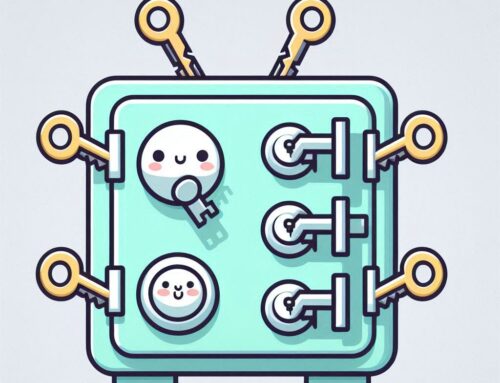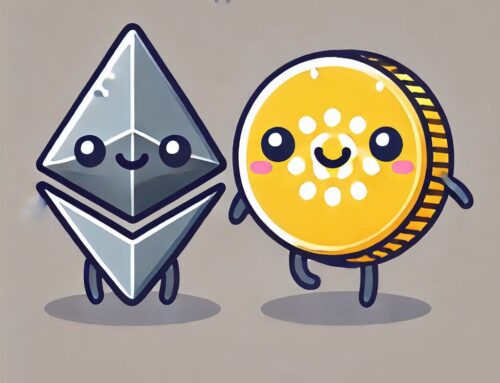Cracking the Plutus Code: A Practical Guide to Cardano Smart Contracts (Because Code Should Be Smart, Not Scary!)
Alright, aspiring Cardano developers, let’s demystify the heart of Cardano’s smart contract capabilities: Plutus! No, it’s not a new type of energy drink or a planet in a distant galaxy (although both of those would be pretty cool!). It’s the underlying language and platform that powers all those fancy decentralized applications (dApps) you’ve been hearing so much about. It is, in fact, responsible for all smart contracts on the Cardano network.
Think of Plutus as the engine that powers a blockchain sports car, or the secret sauce that transforms simple ingredients into a gourmet meal. In this guide, we’re going to break down Plutus, the foundation of Cardano smart contracts, into manageable pieces and help you unlock the world of decentralized applications!
What is Plutus, Anyway? (The Foundation of a Smart Contract Empire!)
Before we get coding, let’s first understand what Plutus actually is. Simply put, Plutus is a smart contract language and platform specifically designed for the Cardano blockchain. It provides the tools that developers need, in order to write the agreements that are executed by the network. To put it simply, it’s where all the magic happens!
-
Foundation of Plutus (The Base Layer!): Plutus is the underlying language of the Plutus platform. Think of it like the assembly language for computers; a lower-level language that higher-level languages get compiled to, making it the lowest-level language that allows the high-level functions to be performed.
-
Functional Programming (The Secret to Stability!): Plutus is based on functional programming principles, which emphasize pure functions and immutability. This design choice enhances the security and predictability of smart contracts, because it helps to prevent unexpected behavior. It’s like building with perfectly interlocking blocks, rather than with a system that is prone to instability.
-
On-Chain Language (Where the Code Lives!): Plutus is the language used to write and execute smart contracts directly on the Cardano blockchain, ensuring that they are validated by the network and that they are implemented properly.
-
Secure and Reliable (Trustworthy Code!): Plutus is designed to be formally verifiable, which means that the contracts can be mathematically proven to be secure. This greatly reduces the risk of bugs and vulnerabilities, which is essential for building a trustworthy and secure system.
How Plutus Code Works: Demystifying the Magic (It’s Math, Not Sorcery!)
Okay, let’s shed some light on how Plutus code actually works its magic, without drowning you in a sea of technical jargon:
-
Functional Programming (Functions, Functions Everywhere!): As mentioned earlier, Plutus uses functional programming, which means that code is written using functions that don’t have side effects. This makes the code more predictable and easier to reason about, because it’s based on mathematical principles, rather than on complex processes. It’s like building with clearly defined Lego bricks, so everything is structured and works as expected, which helps to build more reliable smart contracts.
-
Lambda Calculus (The Math Behind the Scenes!): Plutus is based on a mathematical model called lambda calculus, which provides a solid foundation for writing and executing complex logic. This allows developers to know that the code is going to function as it is intended. It’s like having a mathematical blueprint for how the smart contracts work.
-
Immutability (Once It’s Written, It’s Law!): Plutus code is designed to be immutable, which means that once a smart contract is deployed, its code cannot be changed. This ensures that the smart contract will always behave as intended, and that nobody can change the rules without everyone noticing.
-
Transaction Validation (The Code Police!): Plutus code is used to validate transactions on the Cardano blockchain, ensuring that all transactions meet the conditions specified in the smart contract. This makes sure that all activity that happens on the network is legitimate. It’s like having a security guard at the entrance of a building, that checks whether everyone has proper authorization to enter.
-
On-Chain Execution (Distributed and Secure!): Plutus code is executed by nodes on the Cardano network, allowing for a decentralized and secure execution of smart contracts. It’s like having a global network of computers working together to enforce the rules, ensuring that everything is running smoothly and securely.
Your Developer Toolkit: Essential Tools for Plutus Development
While Plutus itself is a lower-level language, the Plutus platform provides a range of tools and libraries to make development easier and more user-friendly:
-
Plutus Application Framework (PAF): This framework provides a set of libraries and tools that can help you build and deploy smart contracts. It’s like having a toolbox filled with useful utilities that help make the process more efficient, rather than having to build each tool from scratch.
-
Plutus Playground: The Plutus Playground is an online, web-based development environment where you can write, test, and simulate Plutus smart contracts without needing to set up a local environment. It’s like having an interactive sandbox to test and refine your creations, without putting any real funds at risk.
-
Haskell: While Plutus is a low-level language, most developers use Haskell, a high-level functional programming language, to write their Plutus smart contracts. The code is then compiled to Plutus before being deployed to the blockchain, which offers a more efficient process than writing directly in the lower level code.
-
Cardano Node and CLI: The Cardano node software and command-line interface (CLI) are essential for deploying and interacting with smart contracts on the Cardano network. These are the tools you need to launch your code into the real world, and monitor them in order to keep them running smoothly.
-
Documentation and Tutorials: The Cardano developer documentation provides extensive resources, tutorials, and examples that can help you learn how to develop with Plutus. The resources will help you learn the best practices, and make sure your smart contracts are properly configured.
The Core Principles Behind Plutus and Smart Contract Development:
To help guide you along your way with Plutus and smart contract development on Cardano, here are some core values to follow:
-
Security: Security is more important than innovation, so always prioritize security.
-
Reliability: Reliability is second most important. Focus on robust, predictable, and testable code, rather than on code that has more complicated, unnecessary logic.
-
Functionality: A smart contract is only valuable if it is useful. So always look at features that enhance accessibility, or offer a service that can be used by many people.
-
Transparency: Make sure to build features where the smart contract has full transparency, so everyone can inspect the code and verify its workings.
Key Features of Plutus: (The Highlights Reel!)
-
Security (Guaranteed by Math!): Plutus emphasizes security through formal verification and a functional programming paradigm, so you can rest assured that your code is safe.
-
Reliability (Designed to Last!): Plutus code is designed to be reliable and predictable, making it suitable for building complex and mission-critical applications, where you need a robust and stable system.
-
Flexibility (A Tool for All Trades!): The Plutus platform is flexible and versatile, enabling developers to create a wide range of decentralized applications, tailored for any purpose.
-
Efficiency (Lean and Mean!): Plutus has been designed to execute efficiently on the Cardano network, minimizing transaction costs, and making the platform affordable for all users.
-
Transparency (Open for Inspection!): Plutus code is designed to be transparent and auditable, which allows for greater trust and accountability.
The Takeaway: Plutus – The Foundation of the Cardano Smart Contract Revolution
Plutus is the bedrock upon which all smart contracts on Cardano are built, serving as the core technology behind many innovative applications. By providing a secure and reliable environment for smart contracts, Plutus is enabling a whole new era of innovation on the Cardano network, and providing valuable tools for developers to build a decentralized, trustworthy, and open source future. So, keep on coding, and together we can push the boundaries of what’s possible with Plutus and smart contracts!





